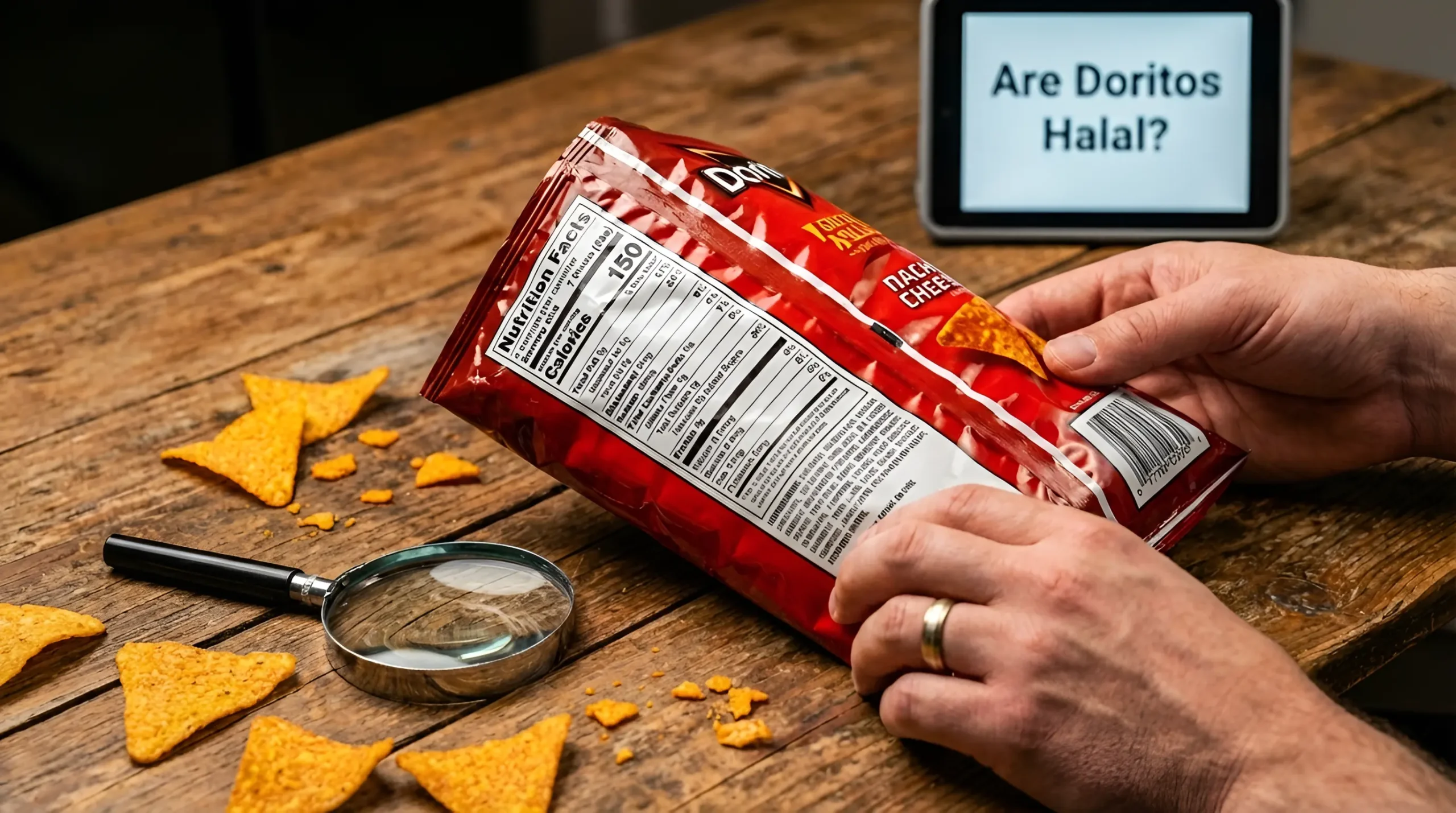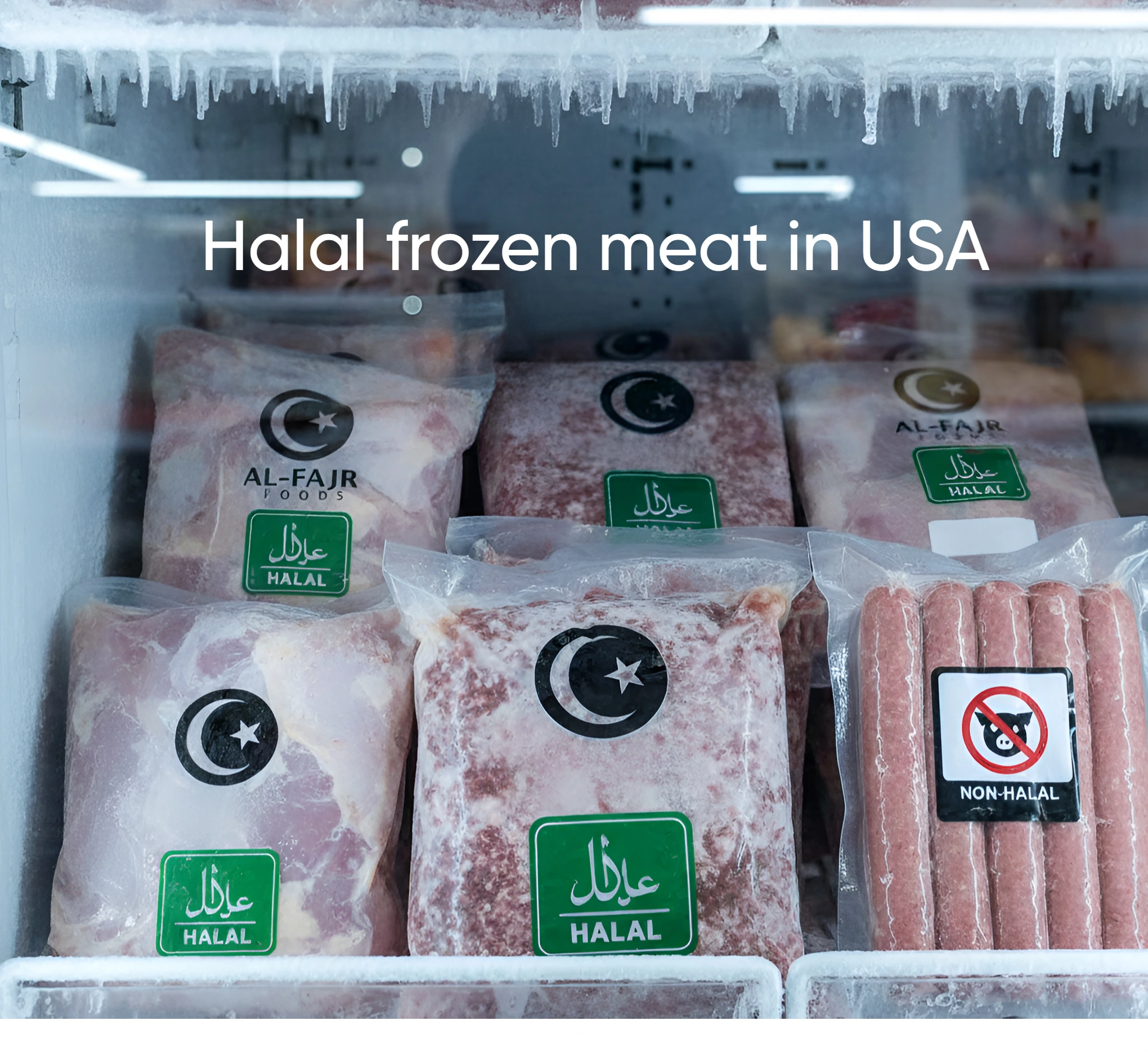Is Doritos Halal in Your Country? Ingredients & Certification Guide
Are Doritos Halal? A Deep Dive for the Conscious Consumer
You’re in the snack aisle of your neighborhood grocery store. The colorful, crinkly packages of Doritos beckon. The allure of that pungent, cheesy, crunchy delight is nearly unresistable. You grab a bag of Nacho Cheese or Cool Ranch, then a vital question halts you: Are Doritos Halal?
For many Muslims worldwide, it’s no joke. It’s a matter of faith, a deliberate decision to follow Islamic dietary regulations that apply to everything from what you eat to how you eat. The response, sadly, isn’t as simple as a “yes” or a “no.” It’s a complicated jigsaw that hinges on where you are, the flavor you select, and a keen understanding of contemporary food production.
This piece is your ultimate guide. We will go on an in-depth exploration to solve the mystery of Doritos. We will break down the list of ingredients, delve into the subtleties of food science from an Islamic point of view, navigate the differences in manufacturing based on region, and arm you with the information to make an educated and assured choice, every time.
Making Sense of the Framework: What Constitutes a Halal Food?
Before we can examine a particular product such as Doritos, we must first identify the underlying fundamentals of Halal. The term Ḥalāl (حلال) itself in Arabic merely means “permissible.” For the purpose of food, it implies what is permissible for Muslims to eat in accordance with Islamic law, as prescribed from the Qur’an and the Hadith of the Prophet Muhammad (peace be upon him).
In between the cut and dried black and white of Halal and Haram is a gray area called Mushbooh (مشبوه), meaning “doubtful” or “questionable.” Most processed foods of today with their lengthy and intricate lists of ingredients fall here. Anything whose source is doubtful or unknown becomes Mushbooh. Islamic doctrine advises Muslims to eschew doubtful things in acts of piety and to protect their faith.
The search to find out whether or not Doritos are Halal is really a matter of shifting the product from the Mushbooh column to the clear Halal or clear Haram column.
Deconstructing the Doritos Bag: An Ingredient-by-Ingredient Investigation
A bag of Doritos is not simply a corn chip. It’s a highly engineered product. The chip itself is pretty straightforward, but the magic—and the intricacy—happens in the seasoning that covers each triangular piece. Let’s dissect the typical ingredients and see where the potential Halal issues are.
The Base Chip: Generally Safe Territory
The base of a Dorito chip is easy. It’s usually constructed with:
- Whole Corn: Beyond question, Halal.
- Vegetable Oil: Corn oil, canola oil, and sunflower oil are all plant-based and thus Halal.
- Salt: A mineral, and thus Halal.
A plain, unsalted corn chip would be entirely permissible by itself. The issue is when the tasty dust is added.
The Seasoning: Where the Doubts Begin
This is the crux of our investigation. The blend of seasonings is a proprietary blend of ingredients, and among the most ubiquitous of them raise instant red flags with Halal-conscious consumers.
1. Cheese and Whey: The Primary Concern
Most of the successful Doritos flavors, such as Nacho Cheese, are, naturally, cheese flavor. The cheese within the seasoning isn’t a plain block of cheddar, though. It’s a sophisticated product produced from milk, cultures, salt, and a key ingredient: enzymes.
- What are enzymes? Enzymes are proteins that function as catalysts to accelerate chemical reactions. The most significant enzyme in cheesemaking is rennet, which coagulates the milk and divides the solid curds from liquid whey.
- The Source of Rennet: This is the single most important point of disagreement. Rennet may be obtained from four primary sources:
- Animal Rennet (Calf): Historically, rennet was obtained from the lining of a young calf that had not been weaned. For the rennet to be Halal, the calf should have been Islamically slaughtered under the rules of Islamic Dhabīḥah. If the calf had not been Islamically slaughtered, the rennet obtained from it is Haram according to the majority of scholars.
- Rennet of Animal origin (Porcine/Pig): Rennet may also be extracted from pigs. This is referred to as porcine pepsin. Any enzyme extracted from a pig is indisputably Haram. This is a huge problem in most food manufacturing systems in the West.
- Microbial Rennet: These are microbial enzymes that are produced by microorganisms such as fungi or bacteria through a process of fermentation. As they are not from an animal origin, microbial enzymes are generally regarded as Halal.
- Vegetable Rennet: These are plant enzymes that originate from thistle or fig leaves. They are also accepted universally as Halal.
- What is Whey? Whey is the liquid product of cheesemaking. If the cheese was produced with Haram rennet (e.g., pig or non-dhabihah animal), then the whey which results is also contaminated and hence Haram or at least Mushbooh. Most Doritos flavors use whey powder as an ingredient to give the cheesy taste.
The verdict on cheese and whey in Doritos hinges entirely on the source of the enzymes used in their production.
2. “Natural and Artificial Flavors”: The Mysterious Black Box
You will find this phrase on almost every processed food label. “Natural Flavors” is an umbrella term regulated by the FDA (in the United States) that can encompass a vast array of substances derived from plants, spices, or animals.
The issue with Halal consumers is the lack of openness. A “natural flavor” may be a straightforward plant extract, or:
- Animal extracts: Flavor from beef, chicken, or even pork. These are sometimes called “animal flavors” or “bacon flavor.” Unless the animal source is indicated as Halal, it’s Mushbooh.
- Alcohol-based solvents: Alcohol is also commonly employed as a solvent to transport flavors. Although most of it is lost in processing, there are residual traces left behind. Scholars have debated the acceptability of foods that contain traces of alcohol so used, but most avoid it altogether.
Unless clearly stated by the manufacturer, the label “natural flavors” makes a product questionable.
3. Other Questionable Ingredients
Though cheese and flavorings are the primary offenders, other lesser ingredients can also be problematic:
- Disodium Inosinate & Disodium Guanylate: These are taste enhancers. They can be manufactured from vegetable sources (such as tapioca starch) or from animal sources. If they are from animals, the same Halal slaughter guidelines apply.
- Animal Fat/Shortening: Although less prevalent in contemporary chips that mostly utilize vegetable oil, some seasonings or manufacturing processes might theoretically employ animal fat for flavor or texture. Any fat of a non-Halal origin (pork or non-dhabihah animal) is Haram.
The Geographic Dilemma: A Dorito in Dallas is Not a Dorito in Dubai
The single most important consideration in determining whether your bag of Doritos is Halal is your location. Frito-Lay (parent company of Doritos, a subsidiary of PepsiCo) has a worldwide presence, but it formulates its products to suit local palates, rules, and religious sensibilities. This implies that Nacho Cheese Doritos made available in the USA differs from those made in the UK, which also differs from those made available in Pakistan or Saudi Arabia.
Let’s analyze the state of Doritos by major regions.
United States & Canada
This is the region with the highest level of concern. Frito-Lay North America has been very open regarding ingredients. Their official website and customer service agents have asserted for years that the enzymes employed in the cheese flavorings on their most popular Doritos varieties (such as Nacho Cheese and Cool Ranch) are from pork.
- The Verdict: Most mainstream Doritos in the USA and Canada are irrefutably Haram because they contain porcine (pork-derived) enzymes.
- Are there any exceptions?
- Vegetarian/Kosher Flavors: Frito-Lay does offer a few flavors that are free of pork enzymes. For instance, their Simply Organic brand or some vegetarian-branded flavors may be animal rennet-free. Some items even have a Kosher certification (i.e., a “K” or “OU” logo).
- Kosher vs. Halal: Be aware that Kosher is different from Halal. A Kosher is great to verify that a product is pork-free and free of pork by-products. Still, it does not ensure that any meat contained is dhabīḥah, nor does it check for alcohol used as a flavoring. For a veggie product such as chips, a Kosher emblem is an extremely strong sign that it is at least pork and other animal enzyme-free, making it a much safer option, although not conclusively Halal without absolute confirmation on all ingredients.
- How to Check: The best place to go is the official Frito-Lay North America website. They regularly post lists of their products that are “Pork-Enzyme-Free” or “Kosher-Certified.”
United Kingdom & Europe
Conditions in the UK are considerably better and mostly more supportive of Muslim consumers. Because there is a larger population of vegetarians and different consumer needs, numerous Frito-Lay UK products are designed to accommodate vegetarians.
- The Verdict: Several of the most well-known Doritos flavors available in the UK, including Chilli Heatwave, Tangy Cheese, and Cool Original, are frequently labeled as “Suitable for Vegetarians.” This indicates that the business is stating that the whey and cheese used are produced using microbial or vegetable enzymes, not animal rennet. This renders them potentially Halal.
- The Remaining Doubt: The “Mushbooh” element can still arise from the “Flavourings” in the list of ingredients.
Though they are vegetarian, they may use alcohol as a carrier. Frito-Lay UK has repeatedly asserted that any alcohol they use is in minute, trace quantities that evaporate as part of the manufacturing process. Most Muslims would find this acceptable according to scholarly opinions about trace amounts of alcohol used during processing that will not intoxicate. For others who adhere to stricter avoidance, this will still be an issue. * How to Check: Within the UK, the best practice is to check the packaging for the “Suitable for Vegetarians” label. This is your number one and most reliable green light.
Muslim-Majority Countries (Middle East, Pakistan, Malaysia, Indonesia)
This is the simplest and most direct area. In nations with big Muslim populations, food manufacturers such as Frito-Lay take considerable efforts to meet local dietary regulations.
- The Verdict: Muslim-majority country-made and sold Doritos are nearly always 100% Halal. The whole production line, from ingredient sourcing to manufacturing, is Halal-compliant. The cheese is produced using microbial enzymes and the flavoring is pork- and alcohol-free.
- How to Check: The best evidence is the availability of an official Halal certification logo on the packaging. They are awarded by reputable Islamic organizations in that nation (e.g., JAKIM in Malaysia, MUI in Indonesia, or local organizations in Pakistan and countries in the GCC). When you notice an approved Halal logo on a bag of Doritos, you can enjoy it with full confidence.
Australia & New Zealand
The scenario here is usually a blend of the US and UK models. Imported products are sold in some, while others are made locally.
- The Verdict: It depends. Consumers need to be careful. Some flavors might be vegetarian, but others might include animal-based ingredients.
- How to Check: Inspect the packaging for any Halal certification or “Suitable for Vegetarians” statement. Look at the company’s local website (Frito-Lay Australia) or call their customer service – the most trustworthy way.
Your Halal Consumer Toolkit: A Step-by-Step Guide
Shopping the snack aisle need not be a stressful experience. With the proper knowledge and game plan in place, you can become an empowered and confident consumer.
Step 1: Identify the Gold Standard – The Halal Logo
This is the easiest and most conclusive way. If you happen to be in a country where Halal certification is prevalent, always check for the logo first. It’s a surety that a third-party agency has audited the product and certified it as Halal.
Step 2: Read the Back – “Suitable for Vegetarians”
If there is no Halal logo, your second-best friend is the “Suitable for Vegetarians” message. This instantly eliminates the biggest obstacle: animal rennet in the cheese and whey. It is a good strong positive indicator, particularly in countries such as the UK.
Step 3: Investigate the Ingredient List
If none of the above are there, then it is time to become a detective. Read the ingredient list thoroughly. Check for these words:
- Cheese, Whey, Milk Solids: Question the origin of the enzymes right away.
- Enzymes, Rennet: If separately listed, a huge red flag unless otherwise explained.
- Natural Flavors, Flavourings: Cause for concern.
- Animal Fat, Lard, Tallow: Clean Haram products.
- Gelatin: Gelling agent, frequently made from pork or non-dhabihah beef.
Step 4: Use Your Smartphone – Visit the Company Website
Most of the big food companies have informative websites with FAQs and product information pages. Try “Frito-Lay [Your Country]” and look for Halal, Kosher, or veg products. This is where Frito-Lay North America actually lists its pork-based products.
Step 5: Be Proactive – Contact the Manufacturer
If you’re not sure, don’t hesitate to call or email the company’s customer services. Be clear in your inquiry. Don’t simply say, “Are Doritos Halal?” because the person handling your call may not be trained to understand the subtlety of the term. Try asking specific questions:
- “Are the enzymes that are used to produce the cheese and whey in your Nacho Cheese Doritos of an animal, microbial, or plant source?”
- “If the enzymes are of animal origin, can you please tell me which animal?”
- “Do any of the ‘Natural Flavors’ in your Cool Ranch Doritos include animal-derived ingredients or alcohol as a solvent?”
Step 6: Consult with Knowledgeable Sources
For more complicated jurisprudential issues, like whether trace alcohol or rennet of non-dhabihah animals (another Islamic schools of thought difference point) is permissible, it is always best to refer to a local authority or Islamic scholar of good standing.
The Final Verdict: So, Can I Eat This Bag of Doritos?
Let’s distill all the above into a clear, useful conclusion. The answer to “Are Doritos Halal?” is a qualified one.
- If you’re in the USA or Canada: Take for granted NO, the most ubiquitous flavors such as Nacho Cheese and Cool Ranch are Haram because of the confirmed usage of pork enzymes. You will have to go out of your way to find certain Kosher or vegetarian-certified ones.
- If in the UK: Take a guess at POSSIBLY YES. Look on the packaging for a “Suitable for Vegetarians” logo. If it is present, then the product contains no animal rennet and is probably acceptable for most Muslims.
- If you are in a Muslim majority nation (e.g., Pakistan, Saudi Arabia, Malaysia): Take YES as a given. The bags are probably made to be Halal. Check it out by seeing if there is the official Halal logo on the bag for absolute certainty.
- If you are in another area (e.g., Australia, Europe): Consider it DOUBTFUL (Mushbooh) until you have a chance to verify otherwise. You need to do your research using the resources listed above: read the label, go to the site, and call the company if unsure.”.
Being a 21st-century conscious Muslim consumer is something that needs to be watched out for. It is an act of worship to pay attention to what we put inside our bodies so that we are fed by that which is pure and lawful. The experience of learning if a simple snack is Halal is a greater lesson: it teaches us to be discerning thinkers, to acquire knowledge, and to apply principles of our religion to our lives.
So the next time you’re standing in the snack aisle, you’ll be equipped not only with appetite, but with information. You’ll be able to scan that package of Doritos, flip it over, and make a decision that is not only good for your taste buds, but also, and more significantly, good for your soul.
For more like this visit : Hilalinfohub




Post Comment